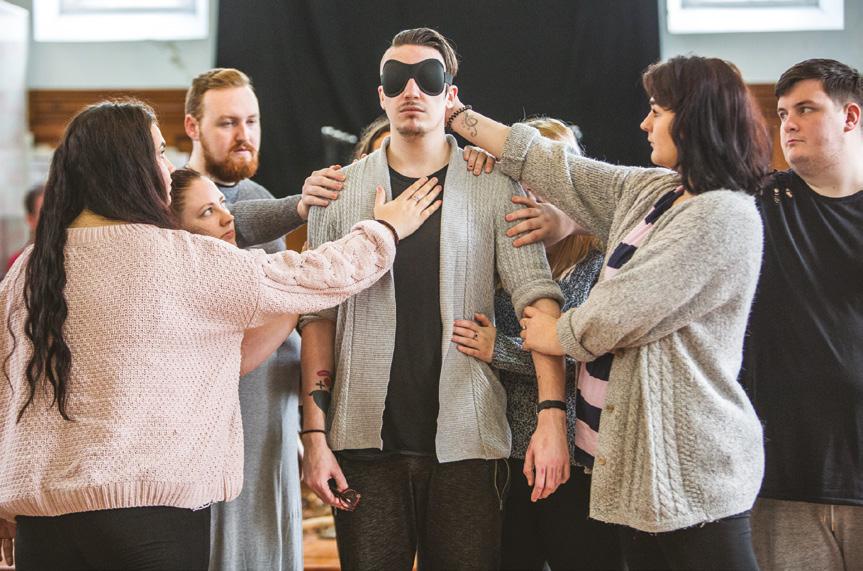Inspiration from ACE Interrupters in Great Britain
Jack Rowlands – the boy from Croydon Chief Inspector, Metropolitan Police, London Chief Inspector Jack Rowlands describes himself as many things – an evangelist for crime prevention, tenacious, the boy who grew up in Croydon. He has won awards for his pioneering work in the Metropolitan Police, namely Divert, a programme he founded to steer young people away from crime and into employment and training. His determination to address the impact of adverse childhood experiences (ACEs) is seen as inspirational by colleagues in the field. And yet, for all his achievements, he suffers from imposter syndrome. “It has taken a long time for me to accept this is what we are doing – as in the whole imposter-syndrome thing, where you go: ‘Is this really happening?’ I’m getting better at accepting that we’re making real change and that the Croydon boy has done this.” Jack launched Divert in Brixton, London, in 2015 when he hit upon the idea of speaking to young people in police custody about their past lives and aspirations. These were young men and women who had been arrested on suspicion of a crime – some would be released with no further action while others would continue through the criminal justice system. … Jack saw custody as an Uniquely, Jack saw custody as an opportunity to engage with them, opportunity to engage with rather than just a place of detention. He wanted to find a way to them, rather than just a break the cycle, to prevent these young people from being place of detention … re-arrested in the future. Divert was so successful that it attracted funding from the Home Office in October 2018 and was rolled out in five other London boroughs. Jack’s team includes programme managers, custody intervention coaches – who interview and support the young people – and partner organisations, like the Palace for Life foundation, a Crystal Palace FC charity. Jack has also developed Divert Youth, a similar programme for children aged 10 to 18 years old, aimed at getting them back into mainstream education or apprenticeships. Divert, meanwhile, targets young adults aged between 18 and 25 years old. “We’re asking these young people to tell us about their story, what’s happened to them,” says Jack. “Having our whole team ACE-aware and trauma-informed enables them to make better judgements in the way we work with those young people going forward.” In the sterile but safe environment of custody, one gang-member opened up about being gay, while another young man told of how his abusive father kept him in the cupboard under the stairs. “The stories that people tell us are about abuse, neglect and maltreatment, the classic early years’ indicators, but sustained maltreatment – we’re talking: ‘I got used to not eating for three days’.” Jack describes his model as “thinking differently” about how to deal with crime and violence. He also hopes to prevent these traumatised young people – on the point of becoming of parents themselves – from potentially subjecting their own children to ACEs. The results are striking. Between October 2018 and June 2019, the Divert team worked with more than 550 people across London, giving them information and guidance. Half of these youngsters went into employment and training. The re-arrest rate for people who have gone through the programme is under 10%, compared with a 28% re-offending rate for young adults in London 49





